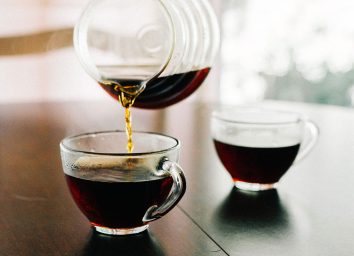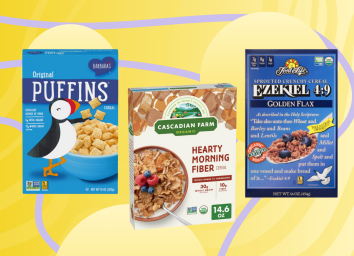10 Coffee Hacks for Weight Loss, According to Registered Dietitians
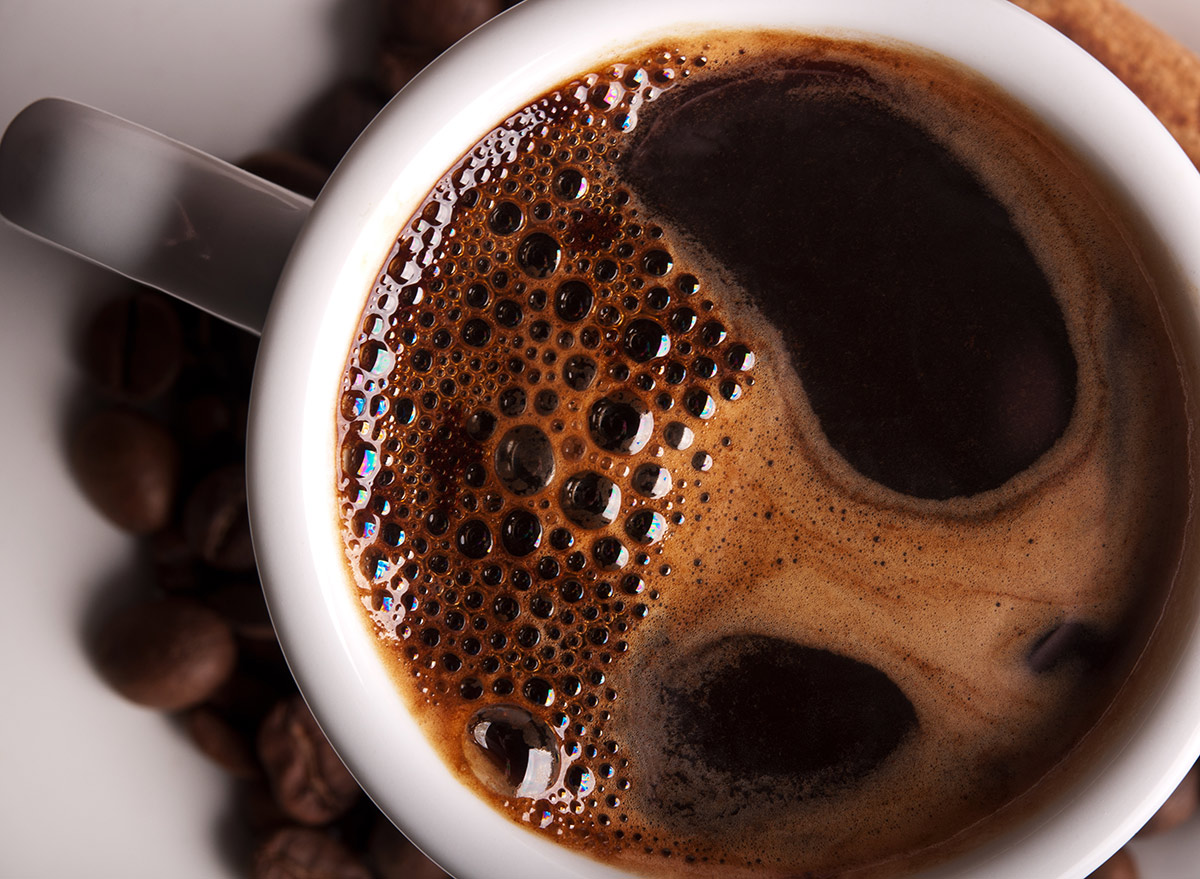
Coffee is your go-to drink in the morning (and maybe throughout the rest of the day, too)—but if you get off track with your weight loss goals every time you start drinking it regularly, you may feel like it's becoming a frustrating case of what we call, deja brew.
In and of itself, coffee has plenty of perks: Research shows that it may help you live longer, enable your body to process glucose (sugar) better, and decrease your risk of health issues like Alzheimer's disease, colon cancer, and heart failure, per Johns Hopkins Medicine. However, it's what you mix into it—as well as pair it with—that can quickly derail healthy eating habits. (Related: 15 Underrated Weight Loss Tips That Actually Work.)
"I think coffee itself is fine, but it gets a bad reputation because we tend to consume excess fat, calories, and sugar with our coffee," says Adriana Sobel, MS, RD, CDN, clinical dietitian at Montefiore Medical Center.
Luckily, there are 10 incredibly easy ways to fit coffee into your weight loss goals, none of which cause you to sacrifice flavor. Read on for delicious, healthy ways to enjoy your daily cup of java. And for more on coffee and weight loss, here are 10 Ways Your Coffee Is Making You Gain Weight, Say Experts.
Resist drinking coffee first thing in the morning
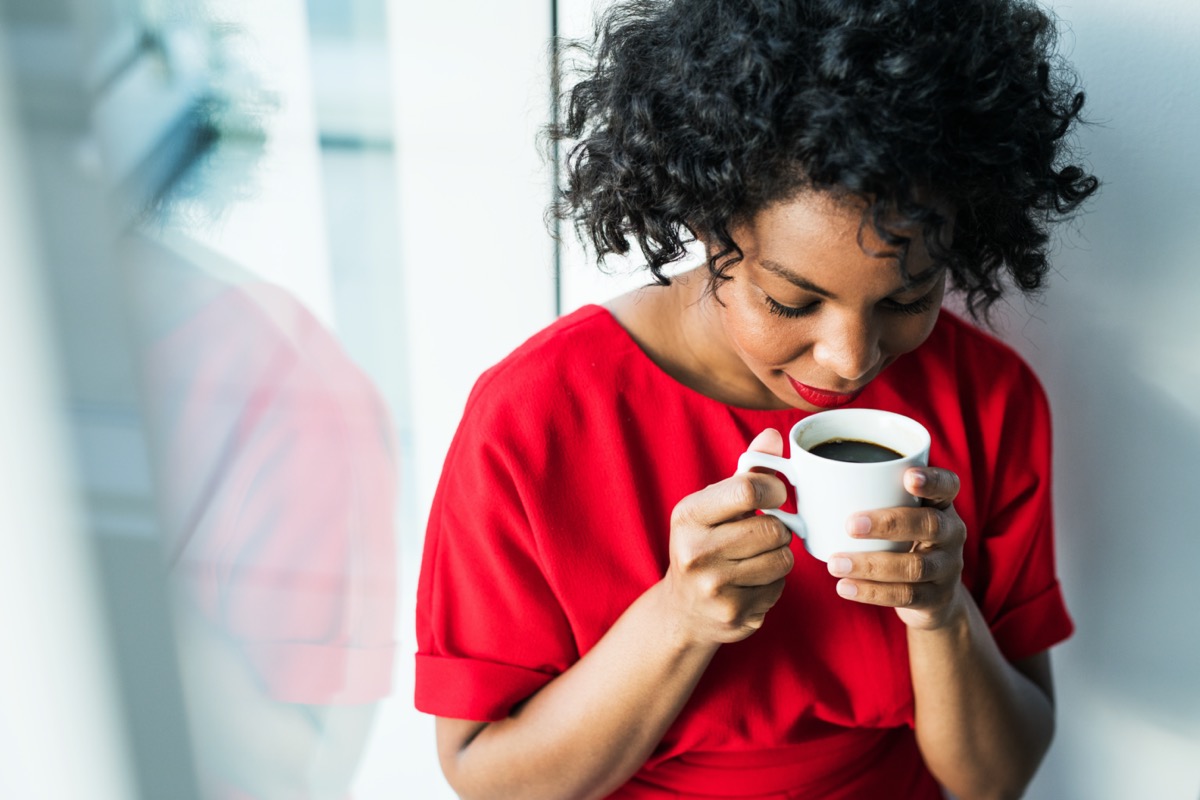
Even if you feel like you need a cup of ambition the moment you get out of bed, pausing to eat something first may help you manage feelings of hunger later on in the day.
"Many times I see clients who will drink coffee immediately in the morning," says Kasey Hageman, MS, RD, LD. "I like to encourage my clients to eat something first and then enjoy their coffee. That's because coffee may reduce your feelings of hunger, which can lead to skipping meals."
Cutting out meals, like breakfast, can lead to overeating later in the day.
That said, you also don't want to drink java too late in the day. When you consume caffeine six hours before bedtime, it can reduce your total amount of sleep by more than an hour, according to a November 2013 study published in the Journal of Clinical Sleep Medicine.
"Drinking coffee too late in the day can cause poor sleep quality, which then leads to tiredness the next day," says Hageman. "Sleep deprivation can lead to making poor choices when it comes to food, which can make weight loss goals more difficult."
For more, check out The 5 Absolute Best Foods to Eat For Better Sleep.
Limit the amount of sweetener you add
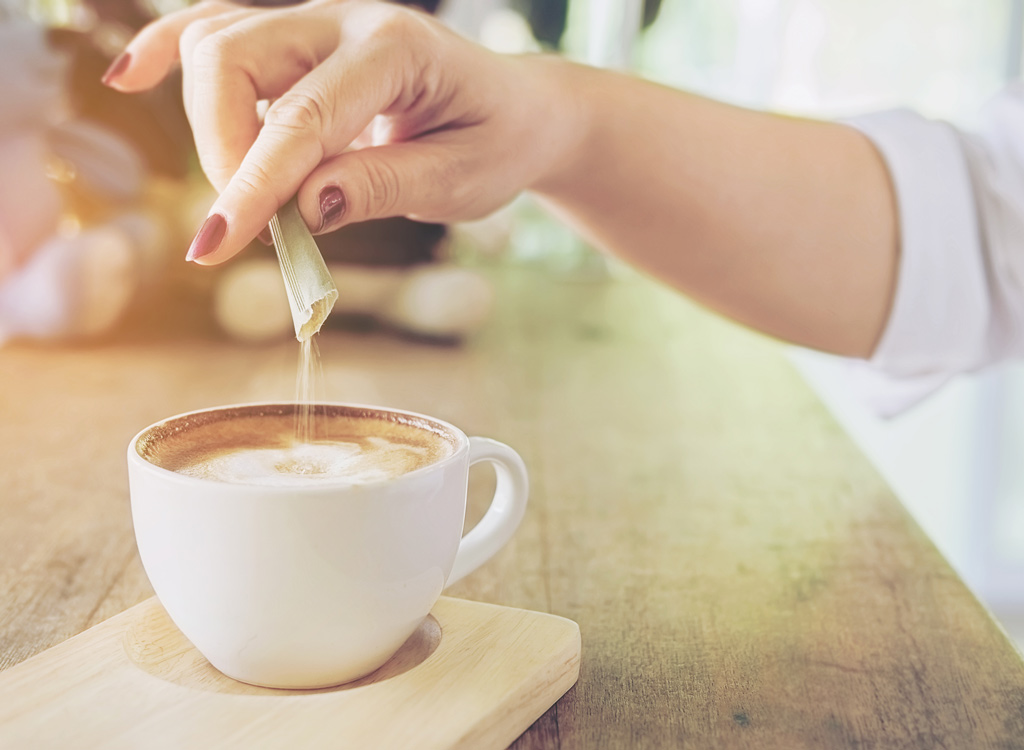
Sugary syrups and sweetened creamers can quickly make your added sugars tally skyrocket. Added sugar refers to sugar added during processing or preparation, or at the table—while naturally-occurring sugars are found naturally in foods like fruit (fructose and glucose) and milk (lactose), says the American Heart Association (AHA).
Women should limit their added sugar intake to no more than 25 grams per day, while men should consume no more than 36 grams per day, according to the AHA. Consuming more than the recommended amount (and often) could lead to weight gain or worse, elevated heart health risks.
"Some simple ways to add flavor to your coffee without extra calories include using vanilla extract, cinnamon, nutmeg, dried lavender, and peppermint extract," says Hageman.
If you typically buy your cup of coffee from a café, be sure to check how many grams of sugar are in your go-to brew. If you need a little flavor, ask for just one pump of syrup instead of the numerous pumps that are typically added.
"Your daily coffee can be an area where you are getting a lot of added calories with low nutrient density," says Hageman. "If you find yourself getting specialty coffee drinks often, it may be time to evaluate how many calories are in the drink you are drinking."
Nix the creamer for a lighter option
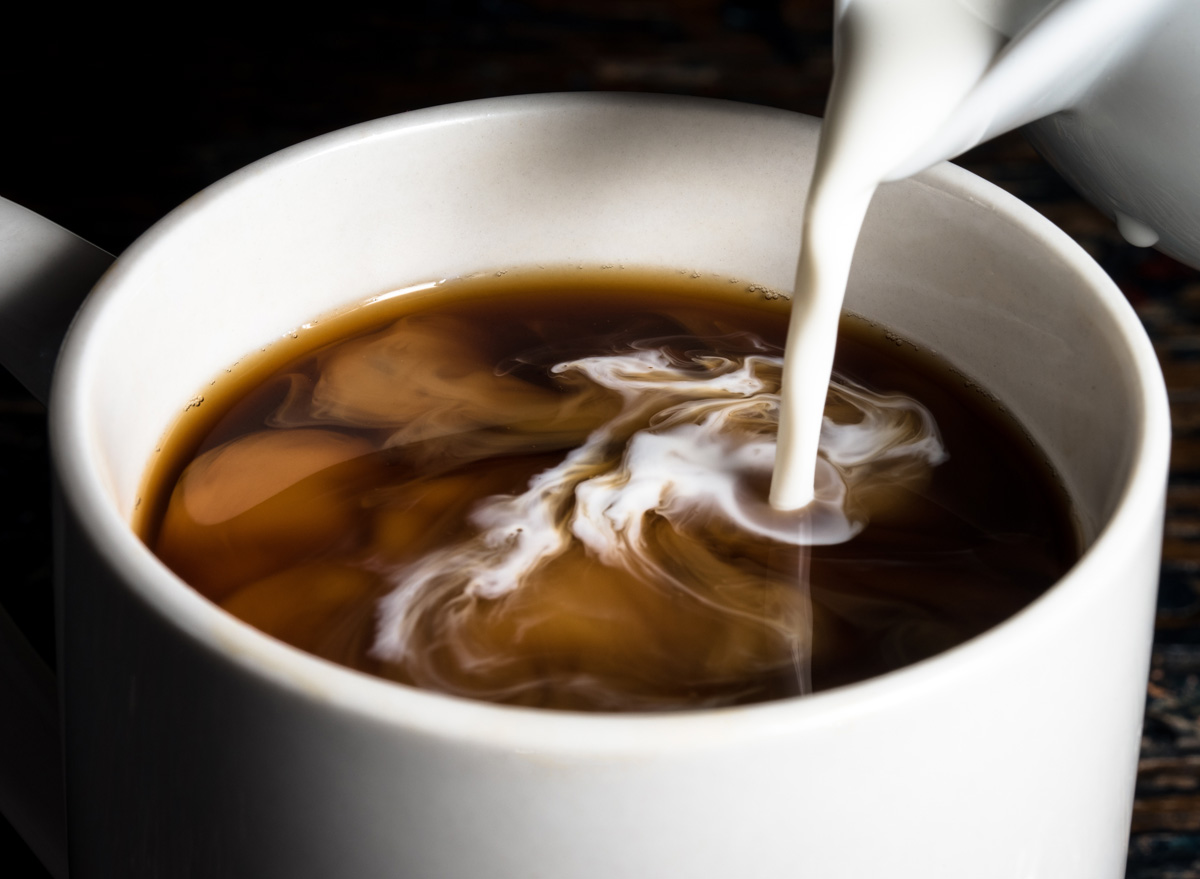
If you drink several cups of coffee per day, creamers high in saturated fat can also add up. One tablespoon of standard coffee creamer contains 30 calories and 2 grams of saturated fat per tablespoon.
Saturated fat is known for raising LDL (bad) cholesterol, which in turn heightens your risk of heart disease and stroke. It can also lead to weight gain, per the U.S. National Library of Medicine.
"Using half and half (20 calories per tablespoon) or whole milk (about 10 calories per tablespoon) can be a simple way to sweeten and flavor your coffee," says Hageman.
You can also use unsweetened plant-based milks such as almond milk, which contains just 2 calories per tablespoon.
"Even if it says 'original,' sometimes those beverages have added sugar in them," says Sobel. "So look for 'unsweetened' on the label."
But don't depend on artificial sweeteners
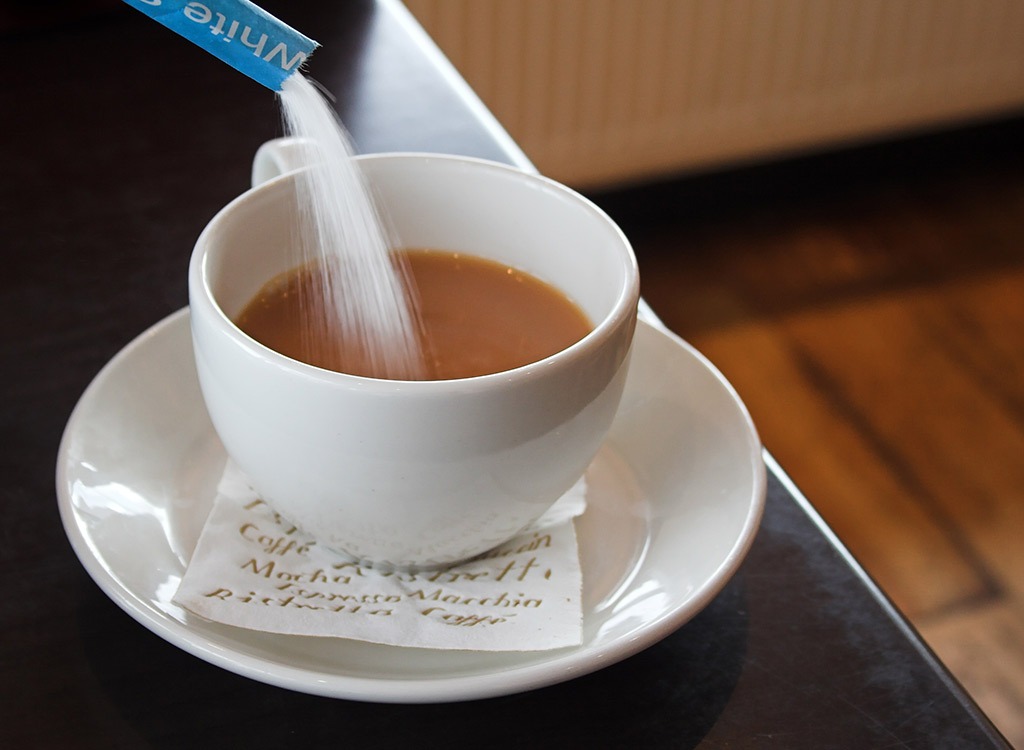
Although they don't have any calories, it may not be helpful to depend on artificial sweeteners to help you reach your weight loss goals.
In fact, replacing sugar with artificial sweeteners appears to have no effect on weight loss, according to a January 2019 review of 56 studies published in The BMJ. What's more, the long-term health effects of artificial sweeteners are still not well understood.
"I think they are a good option for people in certain times and places, but I wouldn't recommend using artificial sweeteners all of the time," says Sobel. "Even though they don't have calories and sugar, they are still a processed food, which we want to decrease in our diet generally."
And for more, here's What Happens to Your Body When You Eat Artificial Sweeteners.
Enjoy natural sweeteners in moderation
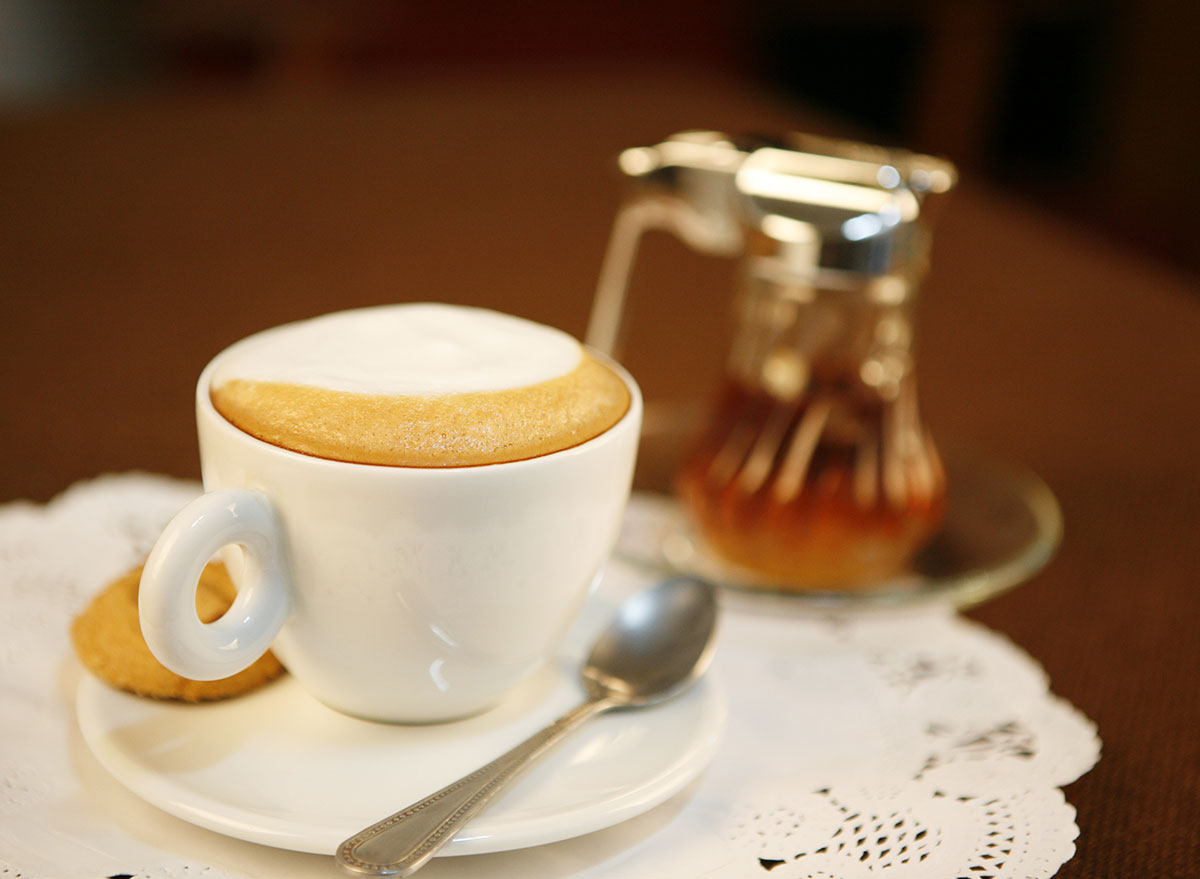
Certain sweeteners like honey or even maple syrup have a health halo because they're considered more "natural" forms of sugar, but keep in mind that they can still add up in calories.
"I like more natural sweeteners because they're a less processed form of sugar, which is beneficial," says Sobel. "But whether it's table sugar or honey, it breaks down into the same thing in your body. It isn't a lower-calorie option."
When you add, say, honey to your cup of coffee, it's still considered an added sugar—which you should consume in moderation.
That said, natural sweeteners like raw honey, maple syrup, agave nectar, and raw sugar provide a few more nutrients than table sugar, according to the Cleveland Clinic. For instance, raw honey and pure maple syrup provide antioxidants and prebiotic compounds that nourish your healthy gut bacteria. Raw honey also offers some vitamin E, vitamin C, and minerals.
Flavor the rind of your coffee cup
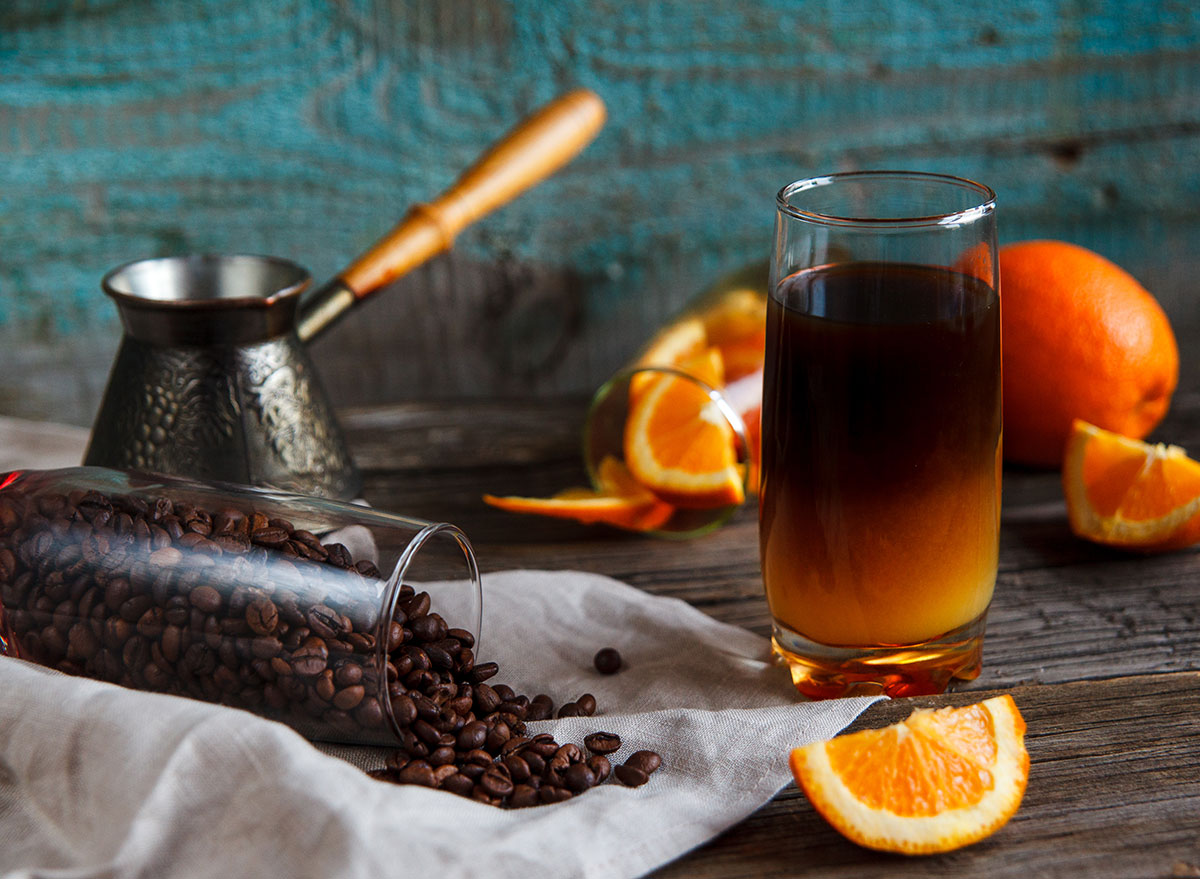
Adding a touch of flavor to the rind of your coffee cup can lend a delicious taste to your brew without sugary additions, says Sobel. Rub an orange peel from your breakfast fruit salad around the coffee cup rim to brighten the flavor of your java.
It may sound odd at first, but this blend of citrus and coffee has a cult following. Cafés in Phoenix, Arizona, have been known to go as far as to mix orange juice with espresso for a pick-me-up morning drink.
Mix things up with flavored beans

The next time you're tempted to pick up a high-sugar creamer at the supermarket, head to the coffee aisle for a bag of flavored coffee beans instead. These use natural extracts like vanilla for taste, rather than added sugar.
"Because of that, flavored coffee beans can be a good twist to change up your coffee," says Sobel.
Alternatively, try flavoring beans yourself at home: "You can also add a chocolate flavor to your coffee by adding about ½ teaspoon of cacao nibs to two cups of coffee beans in your coffee grinder," says Hageman.
Rethink what you pair coffee with
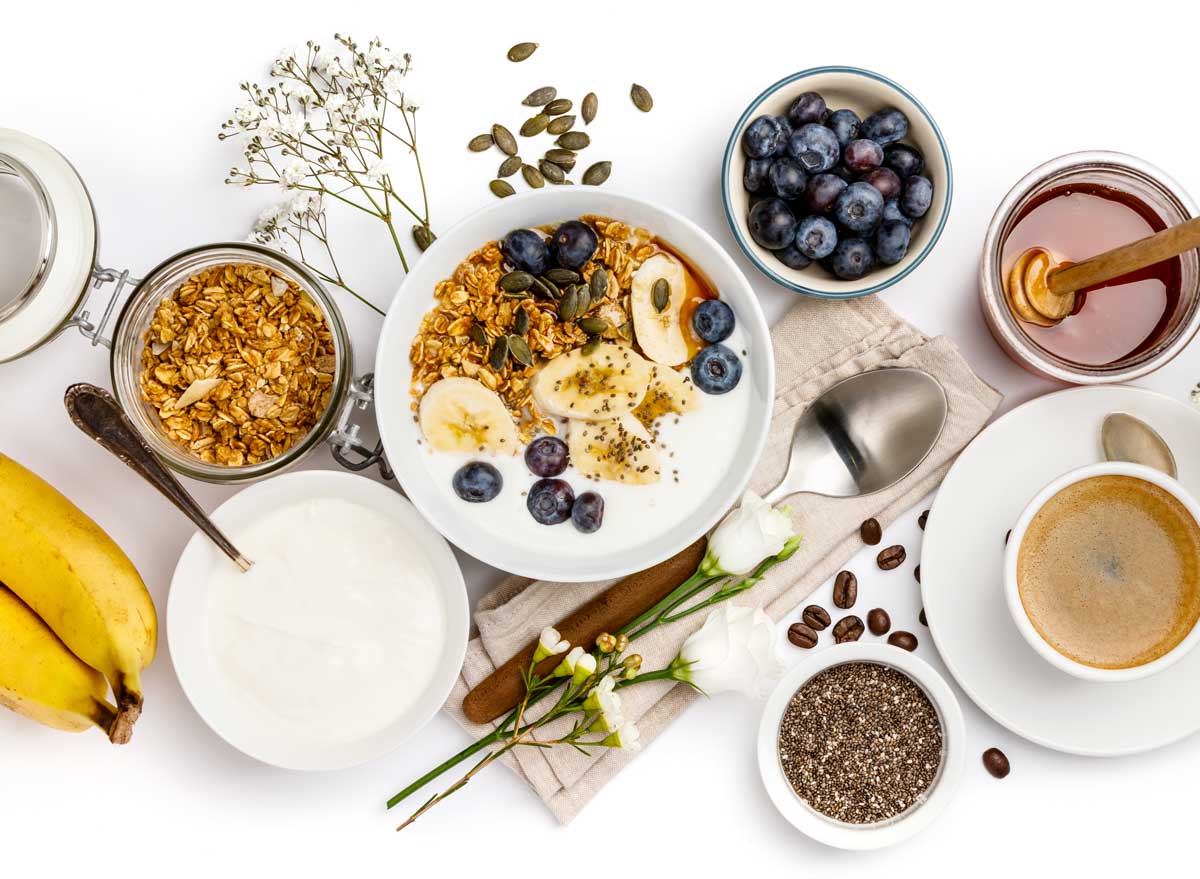
Sometimes, the healthfulness of your coffee habit depends more on what you pair java with than the brew itself.
"People tend to want to dip cookies or biscotti in their coffee, and while that is enjoyable, it can add up in the way of calories," says Sobel. "It's okay sometimes, but if you're doing it regularly, then it can inhibit weight loss. Breaking that association that you need to have a snack with coffee would be helpful if weight loss is your goal."
Healthier options to pair your coffee with might include blueberries, almonds, or quick oats. And for more, here are The 50 Best Healthy Snacks to Buy for Weight Loss.
Strategize your café order
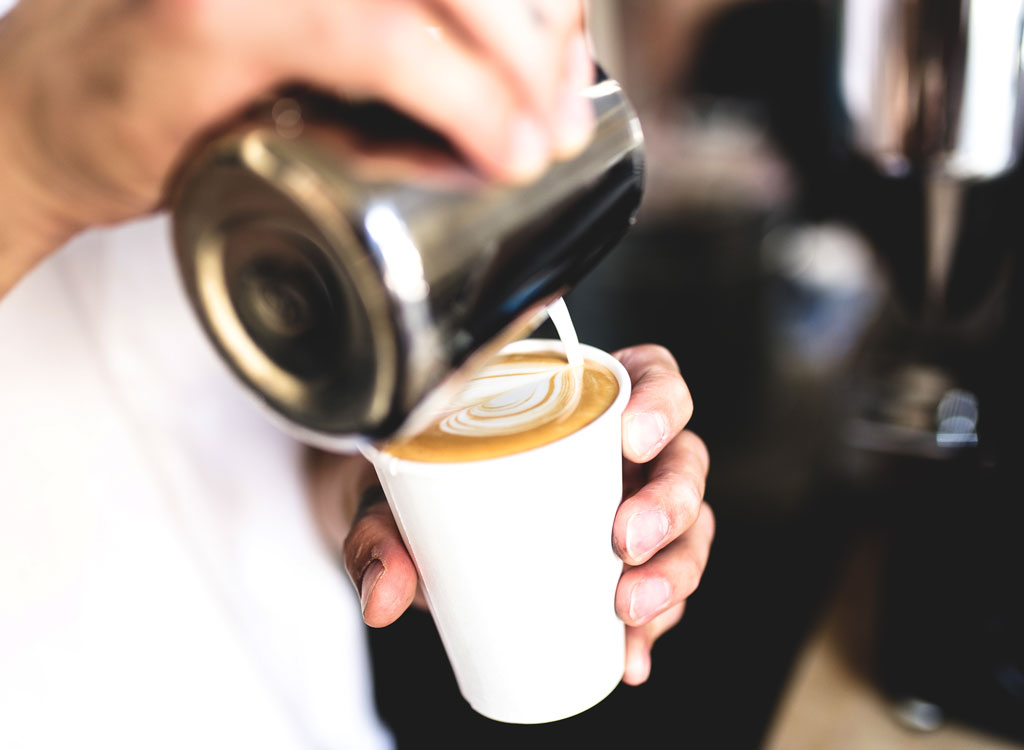
It's perfectly fine to enjoy your favorite café drink, but a few simple tweaks can help you stay on track with your weight loss goals.
"Skip the whipped cream and any toppings like chocolate shavings as often as possible," says Sobel. "Those are definitely going to add up in the way of sugar and calories."
It can be tempting to order a bigger size or a more elaborate drink when you're at a coffee shop. If you find that to be the case, treat it like a special dessert that you enjoy occasionally after a meal—not as your go-to coffee drink.
"Get a small size so the portion is already controlled and you don't have to worry about overconsuming the drink," says Sobel.
Try taking your coffee black
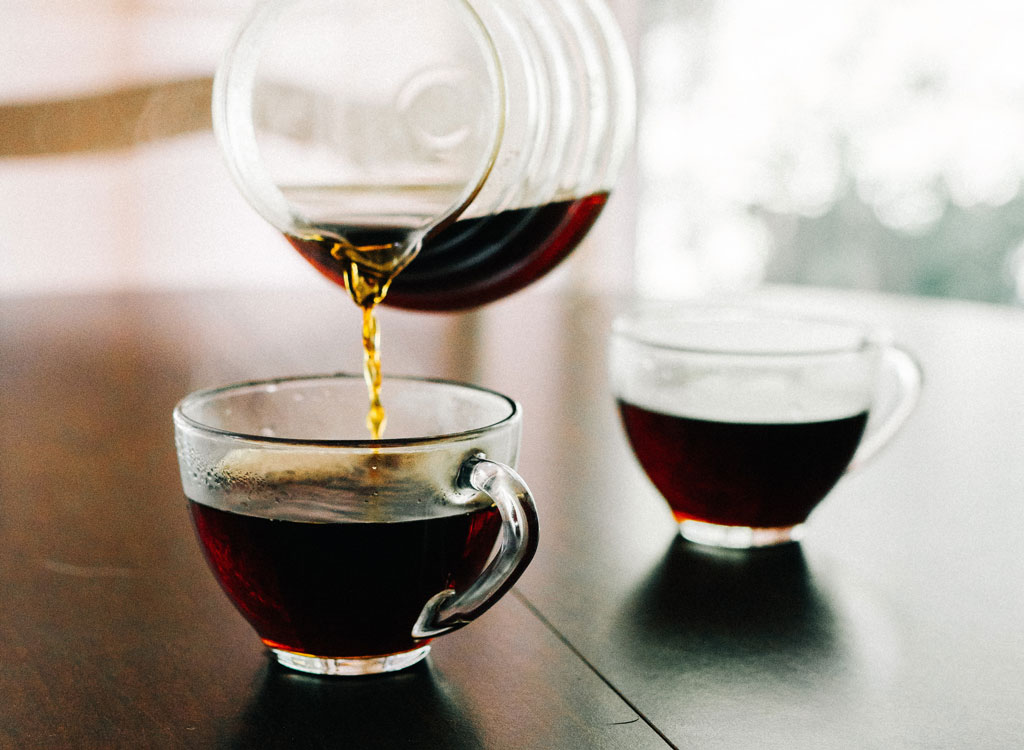
It may sound intimidating at first, but this could be a good option if you're trying to lose weight.
"People think drinking black coffee is a crazy thing, but you definitely get used to it," says Sobel. "If you really love coffee, but you are having trouble trying to lose weight, keep in mind that black coffee has zero calories—and I promise it tastes good."
Are you used to adding spoonfuls of sugar and cream to your coffee? Slowly wean off these additions until you're used to the flavor of black coffee. It's that easy.
"If you put a little less in each time you make coffee, it won't be as much of a drastic difference," says Sobel. "You give your taste buds a little time to adjust, so it doesn't seem so bitter."
For more on boosting your coffee's flavor, here are 5 Reasons Your Homemade Coffee Tastes Terrible.


